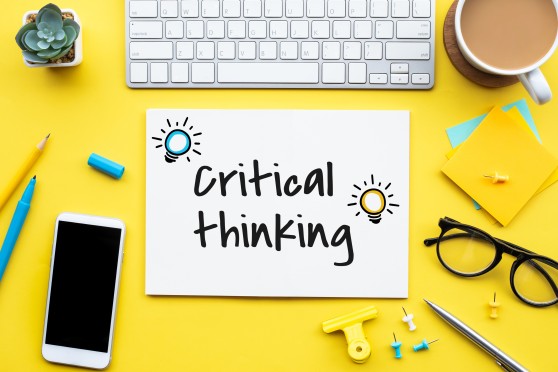Career Advice
Campus to Corporate, Part 4: How to develop a critical thinking mindset from Day 1

Partha Sarathi Basu
Summary
A critical thinking mindset will help you to look beyond the usual evaluating possibilities
It’s a trait that prepares you to think critically to question even when certain things seem obvious
In my last column, we spoke about how to be influential without having formal authority; or, in other words, how to lead when you are not the “boss”. We concluded that it is all about starting to think and act like a leader from the day you step into the corporate world, instead of being a follower all the time.
Today, we will discuss the benefits of cultivating a critical thinking mindset in the first 120 days of your job.
Since every organisation is different and everyone’s situation is also different, what works for some may not work for all. So, use whichever tips feel right to you.
Many a time success in the corporate world depends not only on how you think but also on how you put your thinking across. A critical thinking mindset will help you to look beyond the usual. It will help you and your organisation to reflect further on the impact of any decision before adopting it.
It’s a trait that takes you through a simple mind process of preparing yourself to question even when certain things seem obvious. And as you develop this habit and change your way of thinking, you will embrace an issue by peeling it, like an onion, to move deeper into the subject. Here are some of the questions that will come up then:
- Do we really understand the issue?
- What is behind the symptom that we see first?
- Are we missing something?
- What evidence do we have to support our thinking?
- Do we understand the implication of the actions we plan to take?
- Have all points been addressed?
- What are the alternatives? and so on…… It will help you to have a mindset to look beyond the obvious.
Let’s look at some of the traits of people who show a critical thinking mindset:
- They question the basic assumptions: We often ignore the power of looking at an issue from a different angle and questioning some basic assumptions. Many a time we take assumptions for granted as we believe that they must have been vetted by others who know the situation and the problem well, so we should not question them. A person with a critical thinking mindset may see things differently. They might get into questioning some basic assumptions which can eventually lead to a different conclusion. And even if it does not lead to a different conclusion, at least we can be sure of evaluating different paths before deciding.
- They critically evaluate the possibilities: For any problem, the easiest thing to do is to take the first available solution. But then we may miss out on enormous possibilities. A critical thinking mindset will help you carefully evaluate options before deciding the next steps. It helps you to critically look at the implications by exploring different points of view.
- They show courage: Thinking in a new way or challenging a status quo needs courage — there will be fear of not going with the flow and you could be an outlier. You will sometimes be discouraged as many of your colleagues will like you to play safe. So, you need to get over the fear of losing or going wrong to develop this mindset.
- They ask the right questions: We often ignore the power of asking critical questions. We feel shy and think, “What will others think if I ask something irrelevant?” The point is if you ask only relevant questions, you will only get answers which may already be known to you. Going beyond the obvious is necessary to develop a critical thinking mindset, even if it is a bit irrelevant at times.
- They view problems as opportunity: Each person who has developed this mindset always sees any problem as an opportunity and goes deeper into it, looking for a solution. They look at issues positively and are willing to go the extra mile to resolve them. They have the mindset to challenge the status quo.
- They are continuously unlearning and relearning: An open mind to absorb new learning is part of the critical thinking mindset. Sometimes your past experience and knowledge can hold you back to be critical to a problem and having the openness to unlearn and relearn will steer you to a new direction.
- They embrace the big picture: When you start thinking beyond your job or your function or department and try to look at the implications of a decision at a wider level, you start developing a critical thinking mindset. Then you are no longer focused on using the lens that “protects” your department or your area of influence; you will start looking at the bigger picture.
When you develop a critical thinking mindset, you ask yourself and others several questions, logically, without being emotionally attached to an issue or an outcome. You question basic beliefs and practices, and look at possibilities beyond the obvious.
As the Buddha said: “We are what we think. All that we are, arises with our thoughts. With our thoughts, we make the world.” That probably sums up what a critical thinking mindset is all about.
In the next article, I will share tips on how to ask the right question.
Partha Sarathi Basu has worked in leadership positions at Coca-Cola, Whirlpool, IFB group, Tata group, Spicejet and AkzoNobel. He is currently associated with a leading consulting firm apart from being a leadership coach. He is the author of five books based on his corporate and life experiences. A die-hard Calcuttan, he now lives in Amsterdam.
Last updated on 14 Feb 2022
